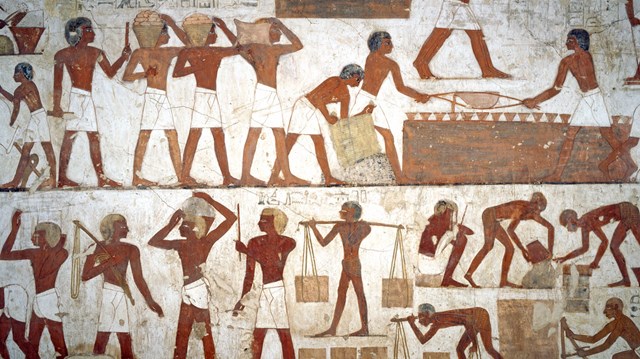One of the basic rules of biblical hermeneutics, i. e., the proper interpretation of a document, is that a text must be considered according to the type of literature it is. The Bible contains all of the forms of literature that we see in any other context of written communication, such as poetry, narrative, law, etc. And one form of literature cannot be interpreted the same way as another. Poetry communicates in a way that narrative does not, for example.
The Book of Acts is a book of history, covering a period of about thirty years from the resurrection of Christ to the imprisonment of Paul. It is not primarily a book of doctrine, in contrast to the epistles, or a book of eschatology like the book of Revelation. Rather, it is a description of the historical events that happened at a certain time. Therefore, any doctrine that depends inordinately on Acts as its basis is likely to lead in an unorthodox direction. We see this in the Pentecostal movement, especially in its
Oneness aberration. Acts is the Word of God, requiring that any doctrine in it must be infallible. However, to put undue emphasis on doctrinal statements in Acts, without vetting it with the rest of Scripture, will
always lead to trouble.
What was Luke's purpose in writing Acts? We see where he gave some indications. Look especially at the first two verses (Acts 1:1-2): "
In the first book, O Theophilus, I have dealt with all that Jesus began to do and teach, until the day when He was taken up, after He had given commands through the Holy Spirit to the apostles whom He had chosen." Luke's first book, that which is called by his name, was devoted to the person and direct teachings of Jesus. The second, on the other hand, was dedicated to His leaving and the growth of the new church under the care of His lieutenants, the Twelve Apostles (with Matthias in the place of Judas, and then augmented by His brother James and the converted Paul). So, according to Luke's own words, his intention was to describe a particular historical situation, not to give doctrinal tutoring. And that makes sense, since Luke was the companion of Paul. Paul's ministry was, in part, to develop the theology of the church. Luke, therefore, provides the historical complement to the ministry of Paul.
We immediately see Jesus's carrying out this program in verses 8 and 24 of the same chapter. In Acts 1:8, Jesus gives another version of His Great Commission: "
You will be My witnesses in Jerusalem and in all Judea and Samaria, and to the end of the earth." The rest of the book would be a record of the first steps in the fulfillment of this commission. Verse 24 is the Apostles profession that they understood their offices to be, not an opportunity for power, but rather that same assignment from their Lord.
We see the continuing development of this post-Jesus church government in chapter 6, where the Apostles this time, not Jesus by direct act, in the appointment of the seven deacons (Acts 6:1-6). The Apostles are now acting in their own authority (under the headship of Christ), a maturing of their sense of responsibility. We see this again in Acts 10:42: "He commanded us to preach to the people and to testify that He is the one appointed by God to be judge of the living and the dead." The Apostles, emboldened by the pouring out of the Holy Spirit (chapter 2), now took a personal responsibility for the ministry assigned to them by Christ, on which the rest of the organized church would be built: "
The household of God, built on the foundation of the apostles and prophets, Christ Jesus Himself being the cornerstone" (Ephesians 2:20).
The logical conclusion from all of this is that Acts is a book of history, a description of events at a particular point in history, and
not (speaking in general) a record of how things are supposed always to be. Compare the Old Testament. Only a lunatic would claim that the command given to Israel to conquer Canaan was intended to be normative for the rest of history. Is each generation of believers supposed to go conquer the land that is now Israel? No. In the same way, the tongues and other miraculous signs of Acts were intended for a particular point in the history of the church, that of its passing from a body in the physical presence of Jesus, to a body spiritually headed by Jesus, but organized by men appointed to that end, as evidenced by special abilities given to them, as Luke himself tells us (Acts 14:3): "
They remained for a long time, speaking boldly for the Lord, who bore
witness to the word of his grace, granting signs and wonders to be done
by their hands" (see also Mark 16:20, II Corinthians 12:12, and Hebrews 2:3-4).













